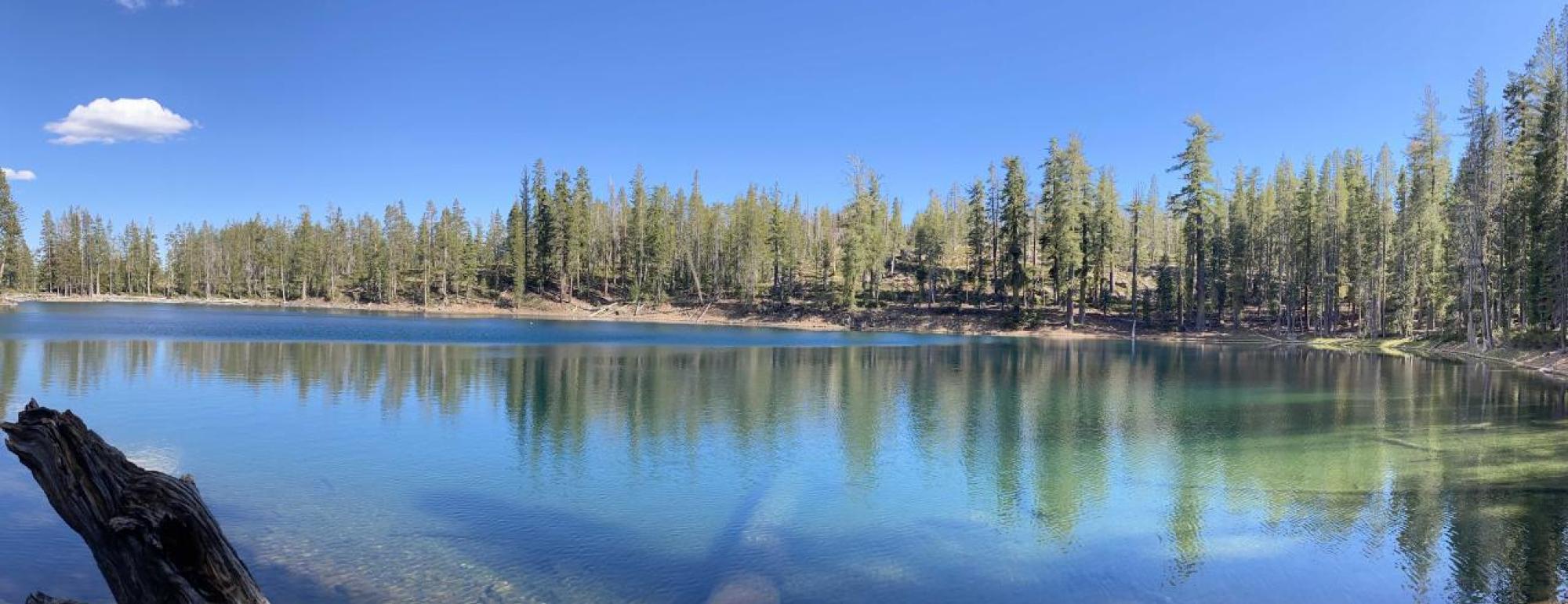The explosion and intensification of climate-driven mega-wildfires over recent years highlights a pressing need to better understand these impacts at all scales. In California, the 7 largest wildfires all occurred within the last 4 years. Yet despite increasing wildfire disturbance, there lacks understanding in the extent to which fire may alter trophic structure in lakes, or the degree to which fire effects are mediated by ecosystem architecture. Little is known about the extent to which fire-related effects may alter freshwater species and ecosystems, even though freshwater taxa may be notably sensitive to fire impacts. What little is known derives primarily from boreal environments, and there have been no pre- versus post-fire food web comparisons (McCullough et al. 2019).
This research project takes advantage of unique pre-wildfire data collected on the food webs of 10 glacial lakes in 2020, and aims to resample these same ecosystems post-fire to understand how severity of fire in watershed impacts lake ecology. During summer 2021, the largest single-source wildfire in California’s history burned ~1M acres, 68.8% of Lassen National Park, and 10 lakes this team sampled for stable isotopes in 2020. The Dixie Fire burned 104 days (mid July – October 2021) and is the first known fire to cross the Sierra Nevada crest. The wildfire burned watersheds and riparian zones of the study lakes, which span a gradient in watershed area and lake size. The team received NSF RAPID support to quantify: 1) whether fishes are eradicated in lakes following mega-wildfires; 2) if post-fire trophic cascade strength varies with ecosystem size; and 3) how lake food web structure and function shifts following burning. Due to the team’s pre-wildfire samples, this is an unprecedented opportunity to better understand lake food web ecology and response to mega-wildfire activity.
In particular, the team will investigate whether large wildfires kill fish populations in lakes and how reductions in non-native fish populations cascade through the food webs to affect the overall health of lake ecosystems. Insights gained through this study will enable better management of lake fisheries and heritage species (e.g., native frogs) following severe wildfire. Further, data collected from this study will inform decision-makers on managing these systems into the future, including when and whether to stock lakes, and how fires impact freshwater ecosystems more generally. Results from this work are anticipated to be useful to diverse ecologists interested in effects of climate change mediated disturbances, but especially limnologists and freshwater scientists struggling to manage these taxa in human-dominated landscapes.

